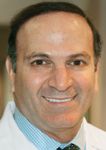- General Dermatology
- Eczema
- Chronic Hand Eczema
- Alopecia
- Aesthetics
- Vitiligo
- COVID-19
- Actinic Keratosis
- Precision Medicine and Biologics
- Rare Disease
- Wound Care
- Rosacea
- Psoriasis
- Psoriatic Arthritis
- Atopic Dermatitis
- Melasma
- NP and PA
- Skin Cancer
- Hidradenitis Suppurativa
- Drug Watch
- Pigmentary Disorders
- Acne
- Pediatric Dermatology
- Practice Management
- Prurigo Nodularis
Article
Dermatologist stays ahead of curve with laser technologies, techniques
When he was launching the laser program at New York University Medical Center, Roy G. Geronemus, M.D., made sure to have the cutting-edge technology of the time: an argon laser to treat port wine stains, venous malformations and telangiectasias. Soon after, NYU was among the first centers in the country to offer the CO2 laser, touted then as the new approach for removing benign skin lesions.

Key Points
When he was launching the laser program at New York University Medical Center, Roy G. Geronemus, M.D., made sure to have the cutting-edge technology of the time: an argon laser to treat port wine stains, venous malformations and telangiectasias. Soon after, NYU was among the first centers in the country to offer the CO2 laser, touted then as the new approach for removing benign skin lesions.

Finger on the pulse

While evaluating the use of the Fraxel re:store dual wavelength thulium laser (Solta Medical) for treatment of dyschromia, Dr. Geronemus and colleagues found that they were able to remove AKs in a simple, noninvasive way.
"This compares very favorably to alternative treatments, such as topical 5-fluorouracil, cryotherapy, immunotherapy or photodynamic therapy. It's much easier and seems to be as effective, if not more effective," he says.
Dr. Geronemus predicts that researchers will continue to find ways in which fractionated technology shines in the treatment of dermatologic conditions that currently have unsatisfactory or unacceptable medical treatments.
Taking a leap
In addition to contributing to the evidence-based body of work on the cosmetic and medical use of lasers, Dr. Geronemus has assumed a role beyond dermatology.
"I've branched out a bit and become chairman of the board of the New York Stem Cell Foundation, which is an independent foundation to support embryonic stem cell research. We've been quite successful in establishing ourselves as an effective, independent stem cell research facility, with our own laboratory and supporting fellowship training and career development of young scientists in the field of stem cell research," Dr. Geronemus says.
Personal reasons - including a close friend whose child has diabetes, and Dr. Geronemus' parents, who have Parkinson's disease - fuel his involvement in stem cell research. The Wall Street Journal reported in June that the New York Stem Cell Foundation had received a $27 million gift from the Robertson Foundation.
"I'm hopeful that this will lead to significant medical benefits in people with chronic diseases (including dermatologic conditions) that haven't been helped with conventional therapies," he says.





